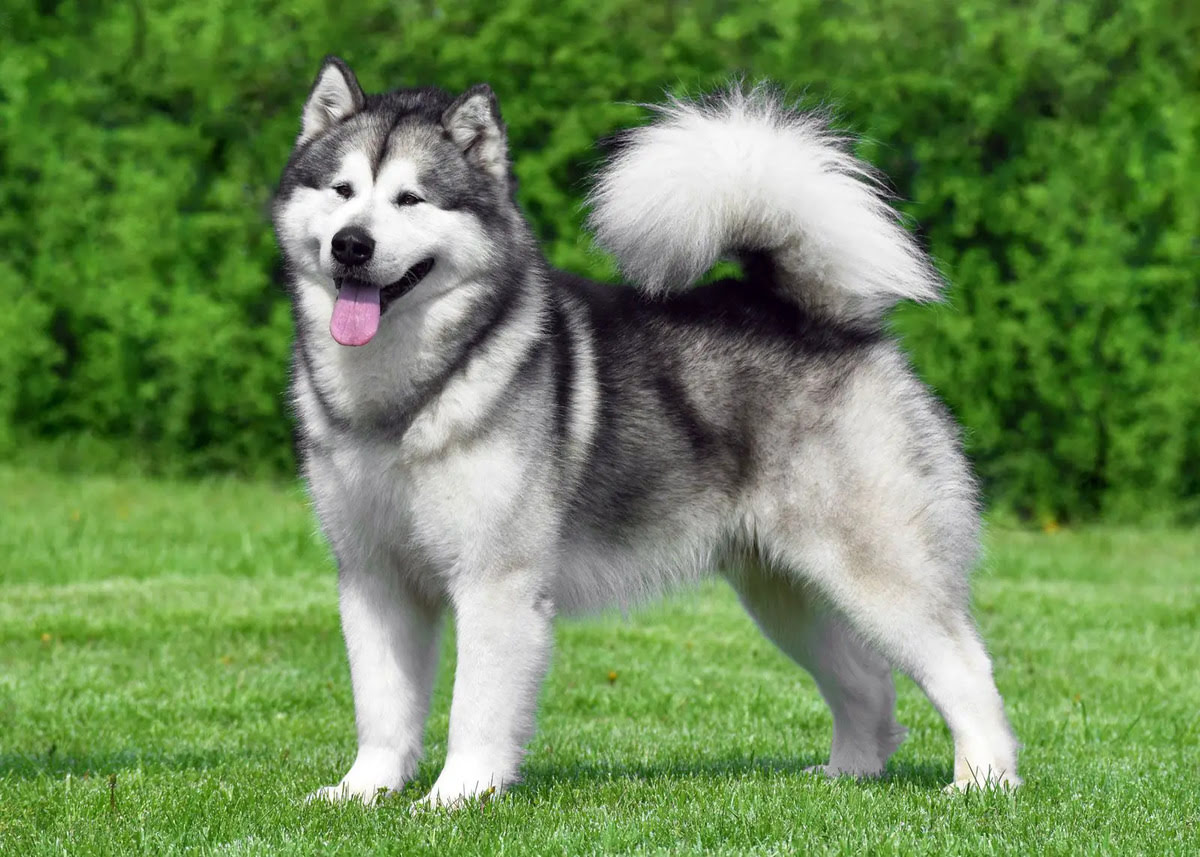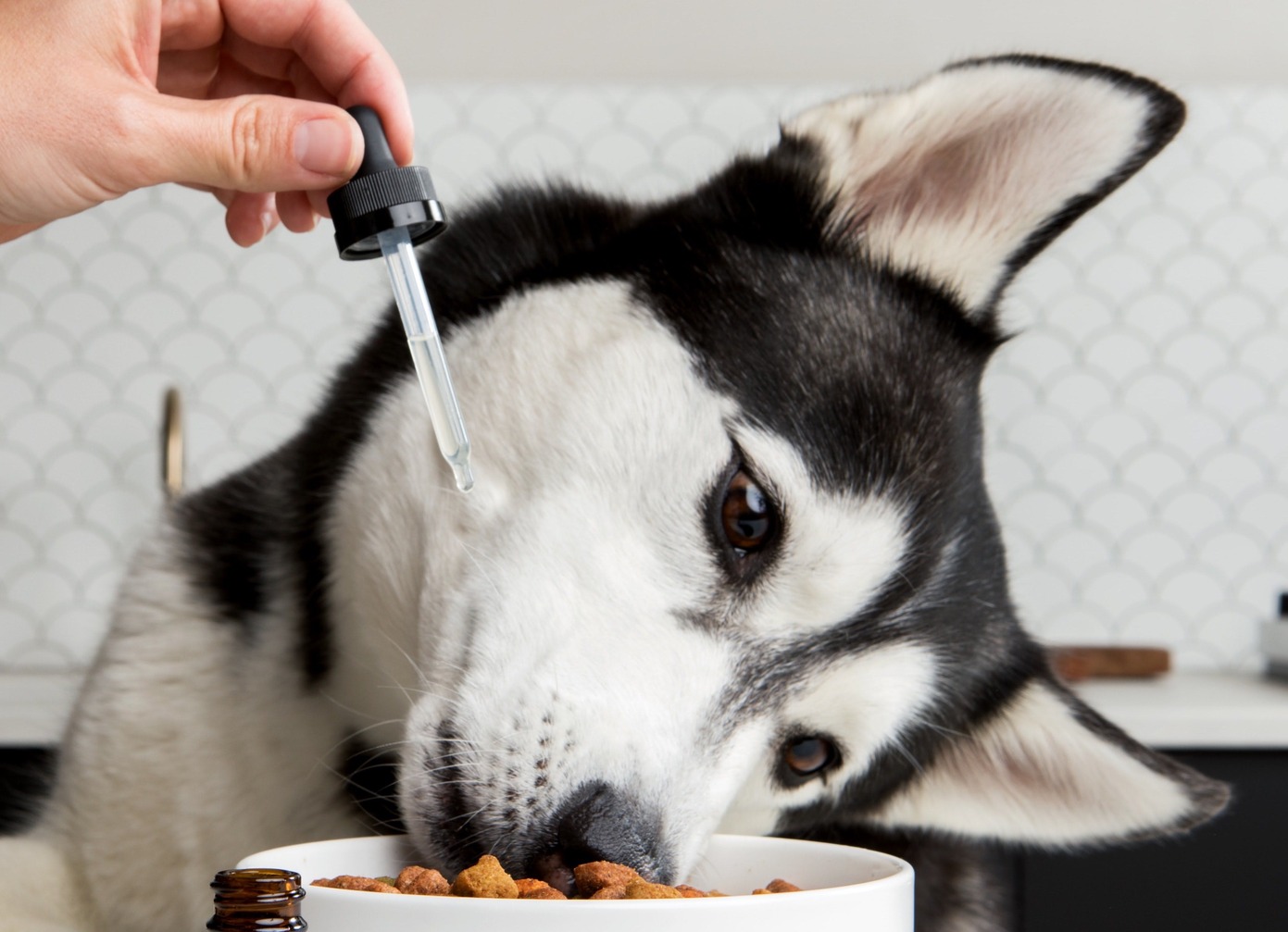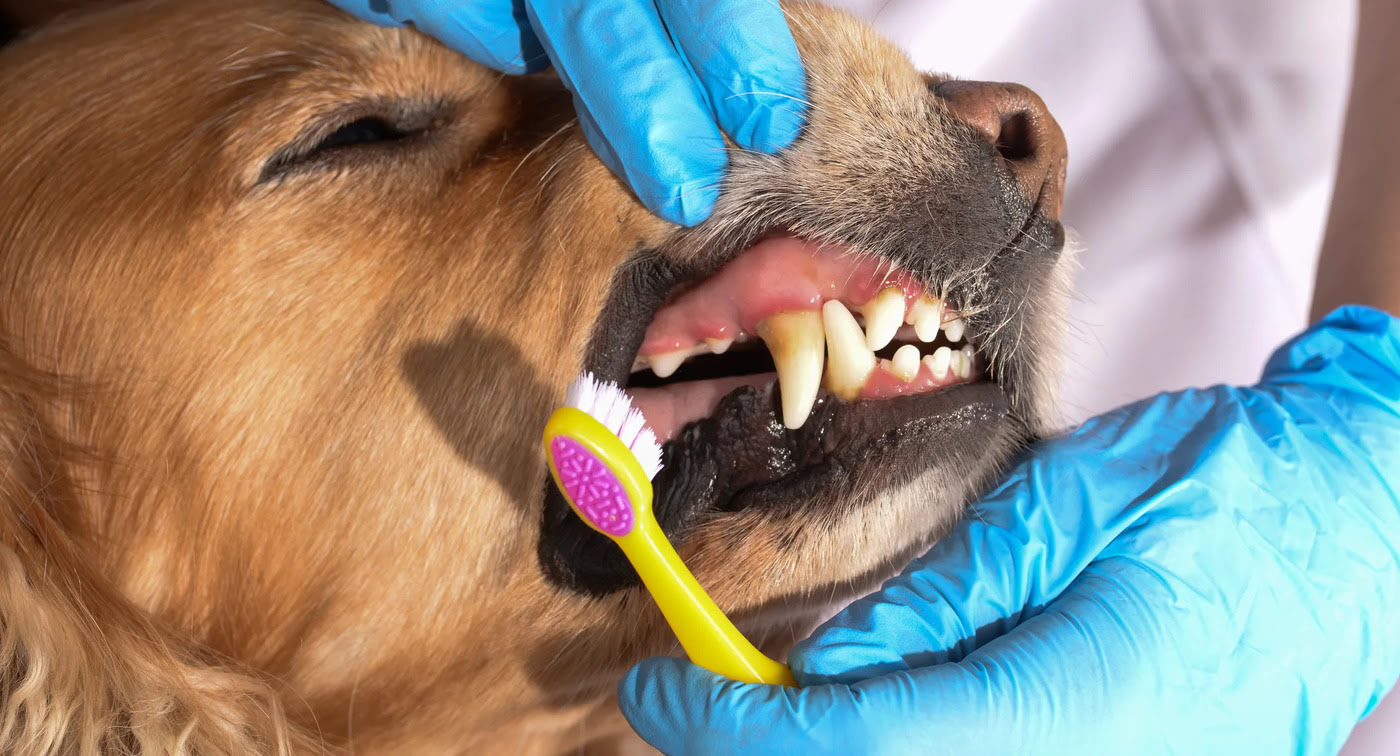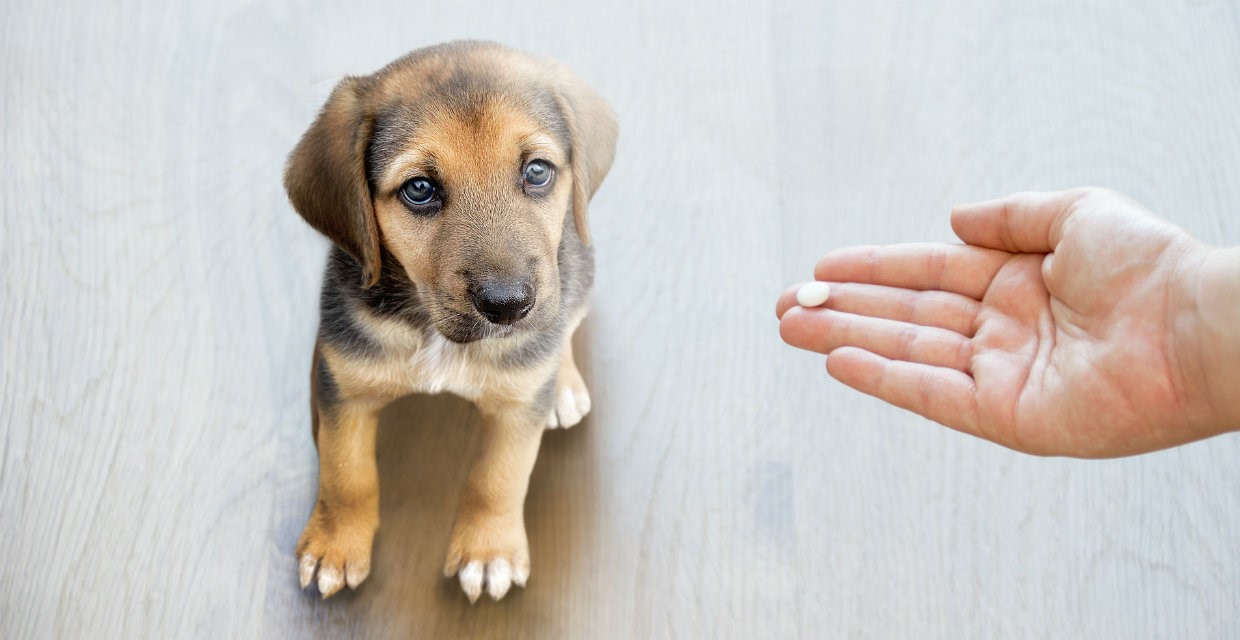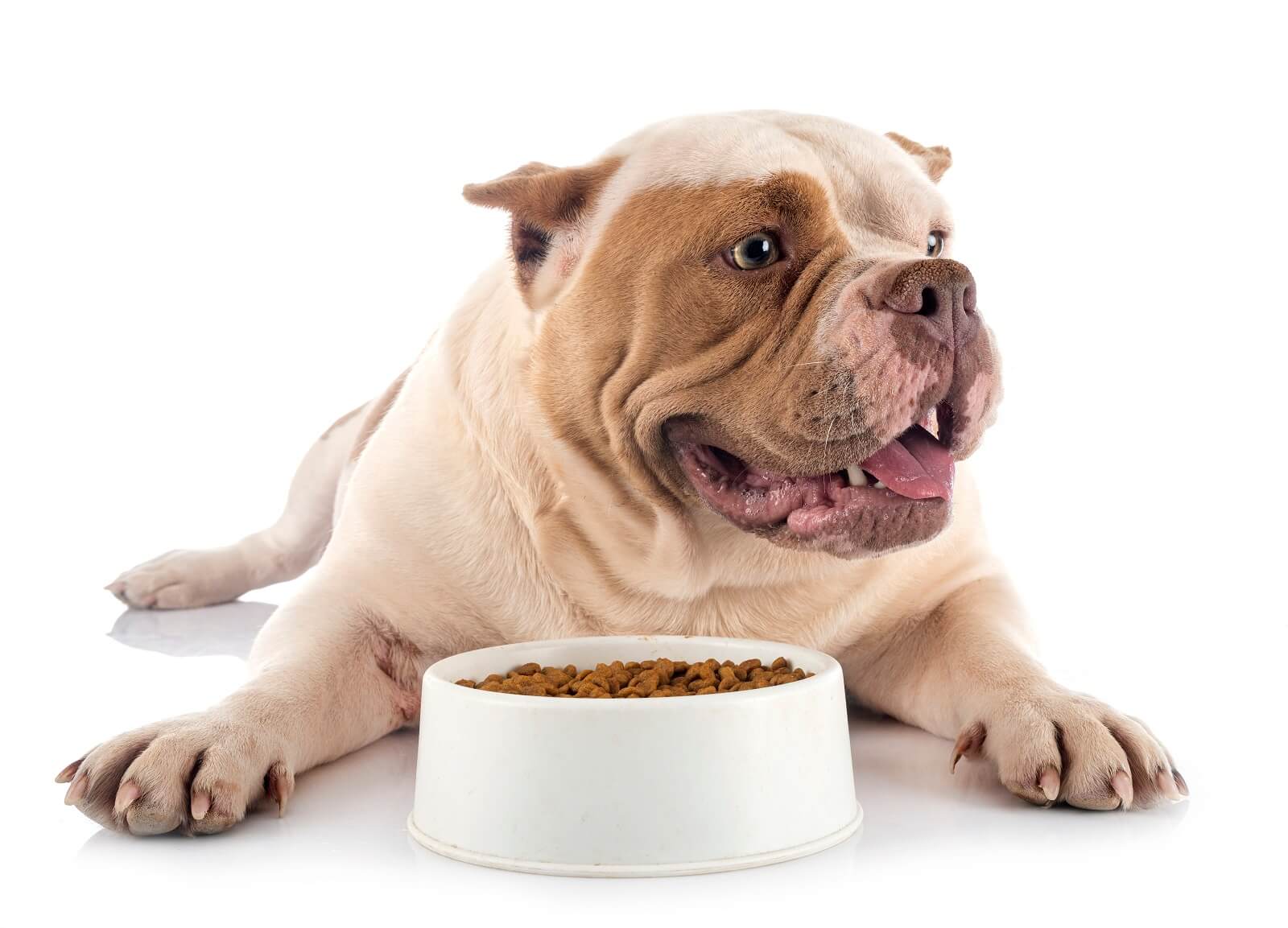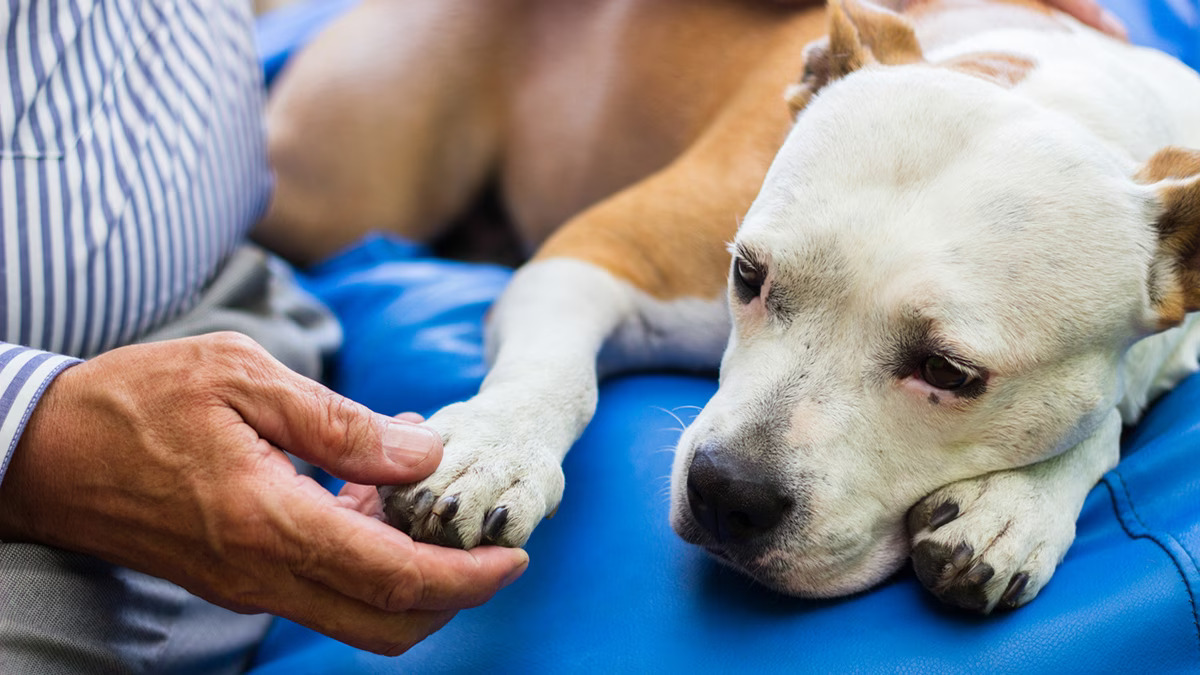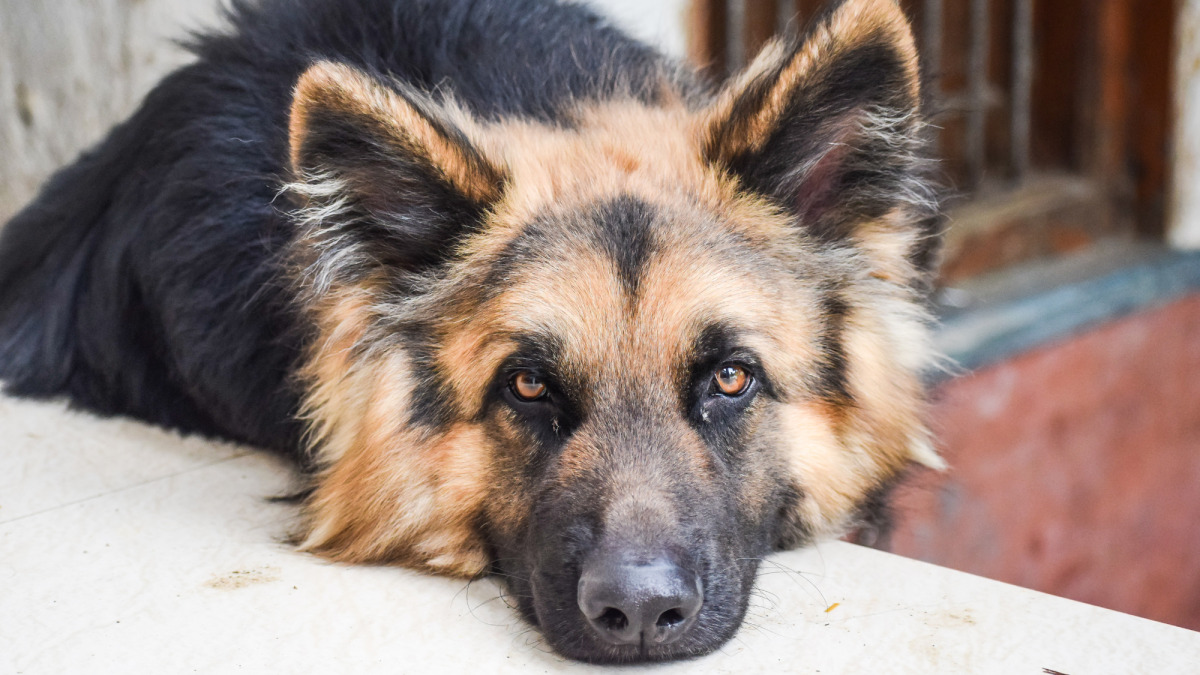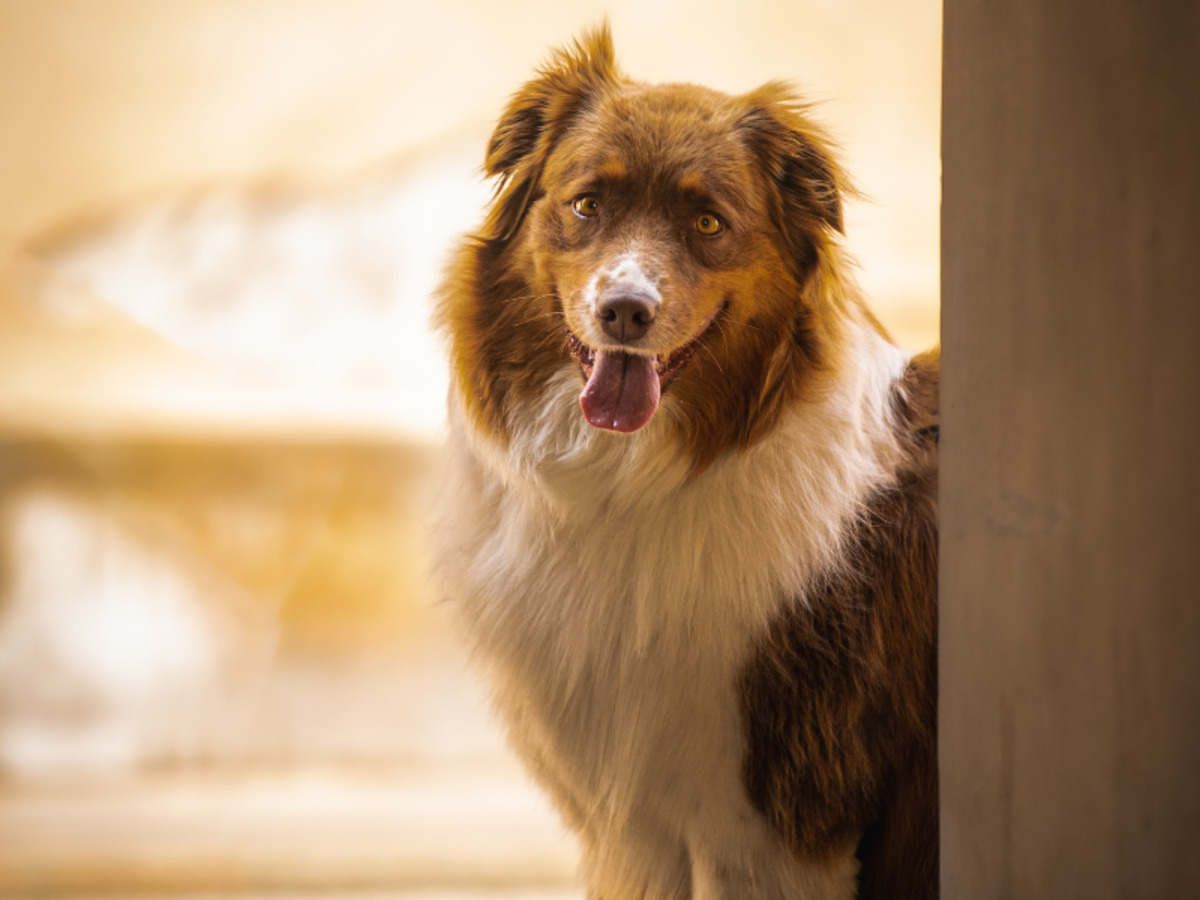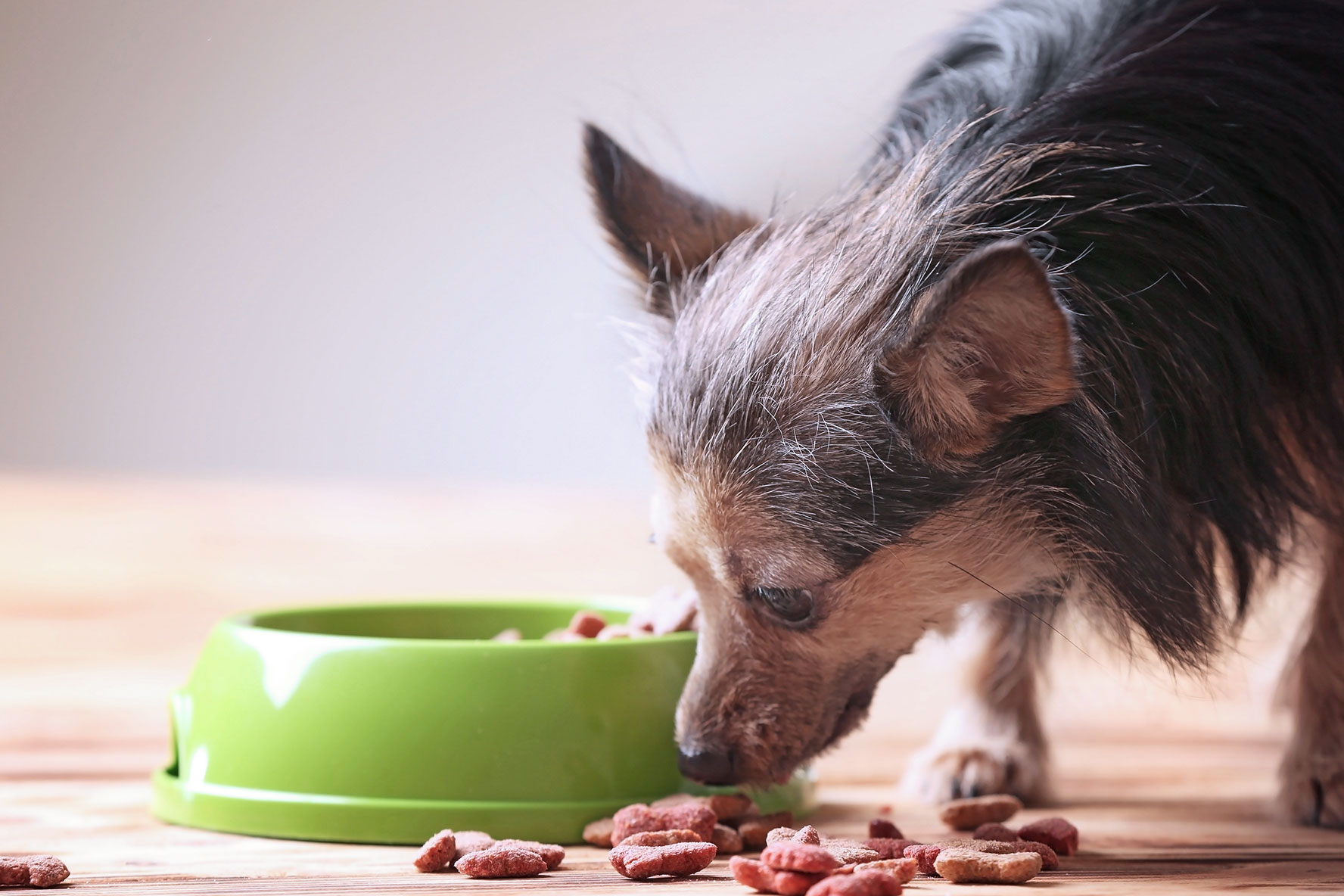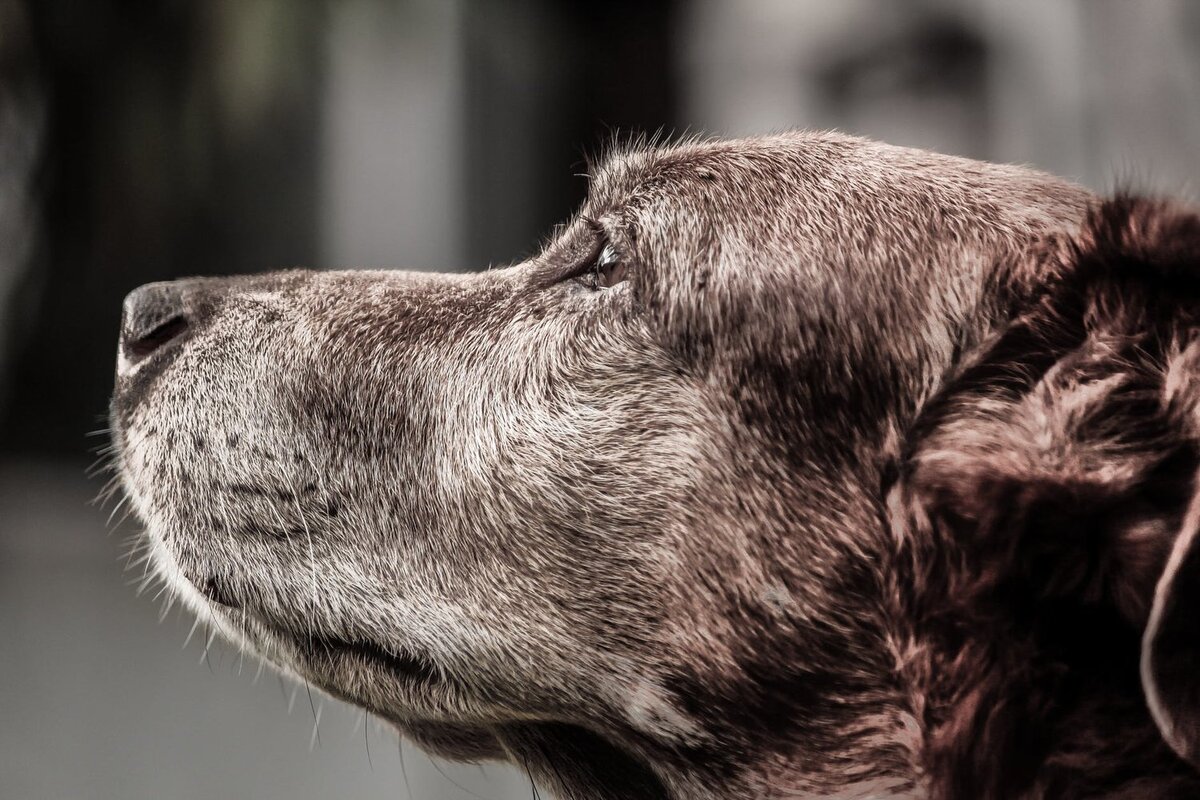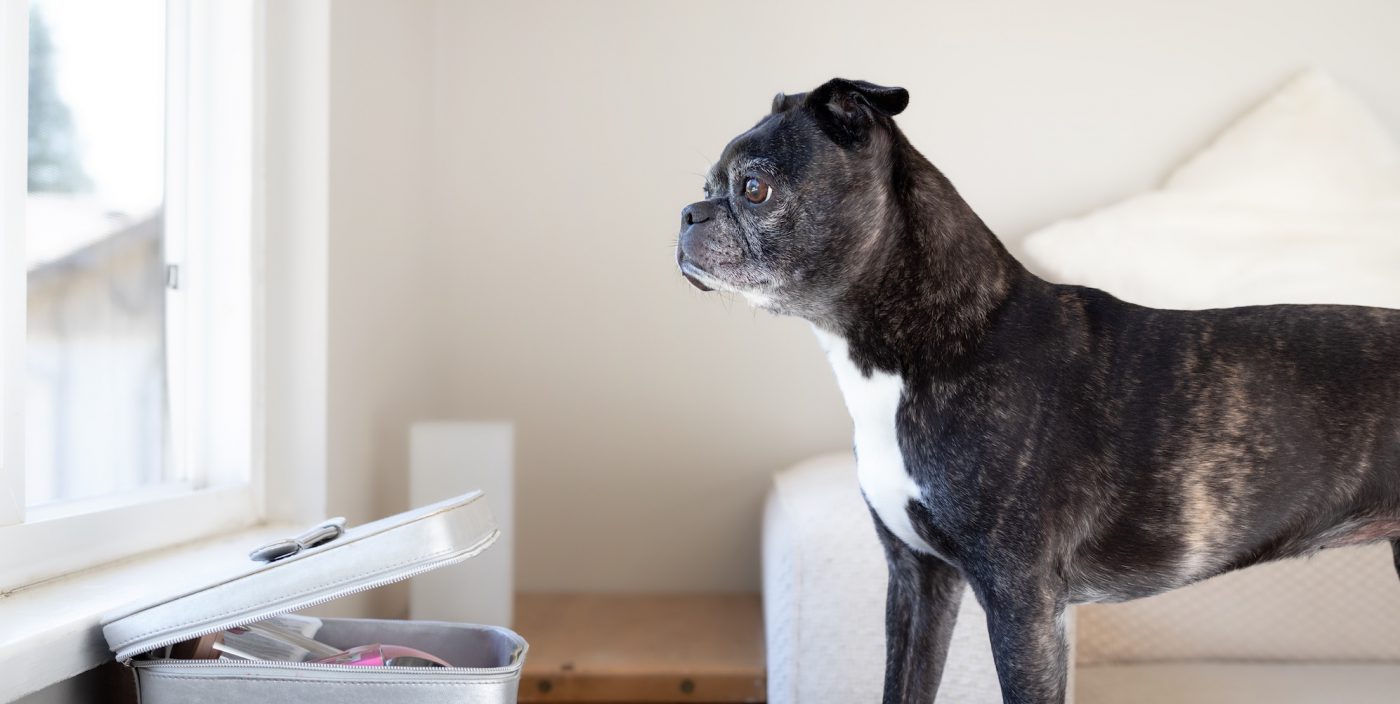Home>Health & Wellness>Behavior & Cognitive Care>How Many Calories Does A Senior Dog Need
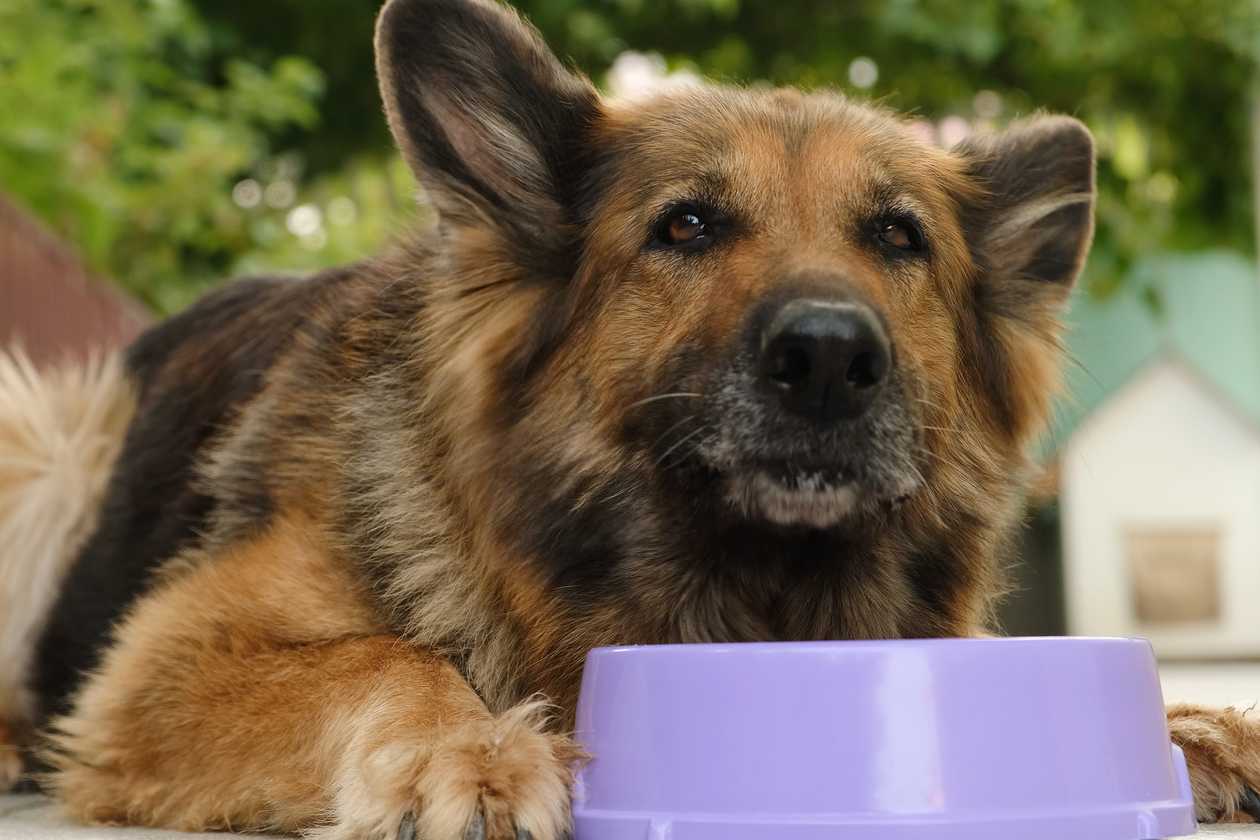

Behavior & Cognitive Care
How Many Calories Does A Senior Dog Need
Published: February 1, 2024
Discover the ideal calorie intake for your senior dog with our expert guide. Learn how to support their behavior and cognitive care needs.
(Many of the links in this article redirect to a specific reviewed product. Your purchase of these products through affiliate links helps to generate commission for Pawsomeoldies.com, at no extra cost. Learn more)
Table of Contents
Introduction
As our furry companions age, their dietary needs evolve, requiring careful attention to ensure their health and well-being. Senior dogs undergo various physiological changes, such as reduced metabolism, decreased activity levels, and potential health issues, all of which impact their caloric requirements. Understanding the intricacies of a senior dog's nutritional needs is crucial for providing them with the best care in their golden years.
A senior dog's diet plays a pivotal role in maintaining their overall health and vitality. Proper nutrition can help manage age-related conditions, support joint health, and sustain cognitive function. By tailoring their diet to their specific needs, pet parents can enhance their senior dogs' quality of life and potentially extend their lifespan.
In this comprehensive guide, we will delve into the factors that influence a senior dog's caloric needs, explore the recommended caloric intake for senior dogs, discuss how to adjust their caloric intake based on individual factors, and highlight the importance of monitoring their weight and caloric intake. By the end of this article, you will have a deeper understanding of how to optimize your senior dog's diet to promote their overall well-being and longevity.
Factors Affecting Senior Dog's Caloric Needs
Several factors influence the caloric requirements of senior dogs, necessitating a nuanced approach to their dietary management. Understanding these factors is essential for tailoring a senior dog's diet to meet their specific needs and support their overall health.
-
Metabolism: As dogs age, their metabolism tends to slow down. This reduced metabolic rate results in a decreased energy expenditure, impacting the number of calories they require to maintain a healthy weight. Consequently, senior dogs may need fewer calories than when they were younger to prevent weight gain.
-
Activity Level: Senior dogs often exhibit lower activity levels compared to their younger counterparts. Decreased mobility and less frequent exercise can lead to a decline in energy expenditure. Consequently, their caloric needs may diminish to align with their reduced activity levels, preventing excessive weight gain.
-
Body Composition: Changes in body composition, such as a decrease in muscle mass and an increase in body fat, are common in senior dogs. These alterations can affect their metabolic rate and overall energy requirements. Adjusting their caloric intake to support muscle maintenance and manage body fat is crucial for their health.
-
Health Conditions: Age-related health issues, such as arthritis, diabetes, and kidney disease, can impact a senior dog's caloric needs. For instance, dogs with certain medical conditions may require specialized diets with specific caloric restrictions or nutrient modifications to manage their health effectively.
-
Digestive Efficiency: Aging can affect a dog's digestive efficiency, potentially impacting their ability to extract and absorb nutrients from food. This reduced efficiency may necessitate adjustments in their diet to ensure they receive adequate nutrition despite potential digestive challenges.
Considering these factors is paramount when determining the appropriate caloric intake for senior dogs. By recognizing the unique needs of aging canine companions, pet parents can make informed decisions regarding their diet, ultimately promoting their well-being and longevity.
Recommended Caloric Intake for Senior Dogs
Determining the recommended caloric intake for senior dogs involves a thoughtful assessment of their individual needs to ensure they receive the appropriate nourishment without excess. While there is no one-size-fits-all approach, general guidelines can serve as a valuable starting point for pet parents and caregivers.
The recommended caloric intake for senior dogs varies based on factors such as their size, age, activity level, and overall health. As a rule of thumb, senior dogs typically require fewer calories than their younger counterparts due to reduced metabolic rates and decreased activity levels. However, it is essential to consider each dog's unique circumstances to tailor their diet effectively.
Small senior dogs, weighing around 20 pounds or less, may require approximately 450-500 calories per day, while larger breeds, such as senior Labrador Retrievers or Golden Retrievers, might need 900-1000 calories daily. These estimates provide a general framework, but adjustments should be made based on individual factors, including the dog's specific energy needs, body condition, and any existing health conditions.
Moreover, the quality of the calories consumed is equally crucial. Senior dogs benefit from nutrient-dense, high-quality food that supports their overall health and addresses age-related concerns. Foods rich in essential nutrients, such as lean protein, healthy fats, vitamins, and minerals, can contribute to maintaining muscle mass, promoting joint health, and supporting cognitive function in senior dogs.
It is important to note that these caloric recommendations serve as a starting point, and adjustments may be necessary based on the dog's response to the initial dietary plan. Regular monitoring of the dog's weight, body condition, and energy levels can provide valuable insights into whether the recommended caloric intake aligns with their individual needs.
By considering these factors and consulting with a veterinarian, pet parents can establish a tailored approach to their senior dog's diet, ensuring they receive the appropriate caloric intake to support their health and well-being in their golden years.
Adjusting Caloric Intake for Senior Dogs
Adapting a senior dog's caloric intake is a dynamic process that requires attentiveness to their evolving needs. As aging can bring about changes in metabolism, activity levels, and overall health, it is essential to monitor and adjust their caloric intake accordingly to promote optimal well-being.
When considering adjustments to a senior dog's caloric intake, several key factors should be taken into account:
-
Body Condition: Regularly assessing a senior dog's body condition is crucial for determining whether adjustments to their caloric intake are necessary. An ideal body condition score indicates that the dog is maintaining a healthy weight, with a visible waist and ribs that can be felt with slight padding. If a senior dog is underweight or overweight, modifying their caloric intake becomes imperative to address these concerns and support their overall health.
-
Energy Levels: Observing a senior dog's energy levels and activity patterns provides valuable insights into their caloric needs. If a dog appears lethargic or lacks enthusiasm for physical activities, it may be an indication that their current caloric intake is not aligning with their energy requirements. Conversely, if a senior dog exhibits excessive weight gain or hyperactivity, adjustments to their caloric intake may be warranted to achieve a healthy balance.
-
Health Considerations: Age-related health conditions, such as arthritis, diabetes, or kidney disease, can significantly impact a senior dog's caloric needs. For instance, dogs with arthritis may benefit from weight management strategies to alleviate joint stress, while those with diabetes may require precise caloric control to regulate their blood sugar levels. Tailoring a senior dog's caloric intake to accommodate these health considerations is essential for their overall well-being.
-
Nutritional Requirements: As senior dogs have unique nutritional needs, adjusting their caloric intake involves ensuring they receive adequate nutrients to support their aging bodies. Nutrient-dense foods that prioritize lean protein, essential fatty acids, and joint-supporting nutrients can contribute to maintaining muscle mass, promoting mobility, and addressing age-related health concerns.
By carefully evaluating these factors and consulting with a veterinarian, pet parents can make informed decisions regarding the adjustment of their senior dog's caloric intake. Regular monitoring of the dog's body condition, energy levels, and overall health enables pet parents to fine-tune their dietary approach, ensuring that their senior dogs receive the appropriate caloric intake to thrive in their golden years.
Monitoring Senior Dog's Weight and Caloric Intake
Monitoring a senior dog's weight and caloric intake is a fundamental aspect of maintaining their health and well-being as they age. By closely observing their weight fluctuations and caloric consumption, pet parents and caregivers can make informed decisions to support their senior dogs' nutritional needs and overall vitality.
Regular weigh-ins provide valuable insights into a senior dog's body condition and can serve as an early indicator of potential health issues or changes in caloric requirements. A consistent and structured approach to weighing senior dogs, ideally every 2-4 weeks, allows for the detection of gradual weight changes that may signify the need for adjustments in their caloric intake. Additionally, utilizing a body condition scoring system, which involves assessing the dog's body composition and palpating their ribs and waist, can further aid in evaluating their weight status and nutritional adequacy.
In tandem with weight monitoring, tracking a senior dog's caloric intake is essential for ensuring they receive the appropriate nourishment without excess. Keeping a detailed record of the types and quantities of food, treats, and supplements consumed by the senior dog enables pet parents to gauge their daily caloric intake accurately. This meticulous approach facilitates the identification of any deviations from the recommended caloric intake and allows for timely adjustments to align with the dog's evolving needs.
Furthermore, observing a senior dog's eating habits, including their appetite, mealtime behavior, and response to dietary changes, can offer valuable insights into their nutritional well-being. Changes in eating patterns or appetite may signal underlying health concerns or indicate the need for modifications in their diet to address specific nutritional requirements.
By integrating regular weight monitoring, meticulous tracking of caloric intake, and attentive observation of eating habits, pet parents can proactively manage their senior dogs' nutritional needs and overall health. This comprehensive approach empowers caregivers to make informed decisions regarding their senior dogs' dietary adjustments, ensuring that they receive the appropriate caloric intake to support their well-being and longevity in their golden years.


